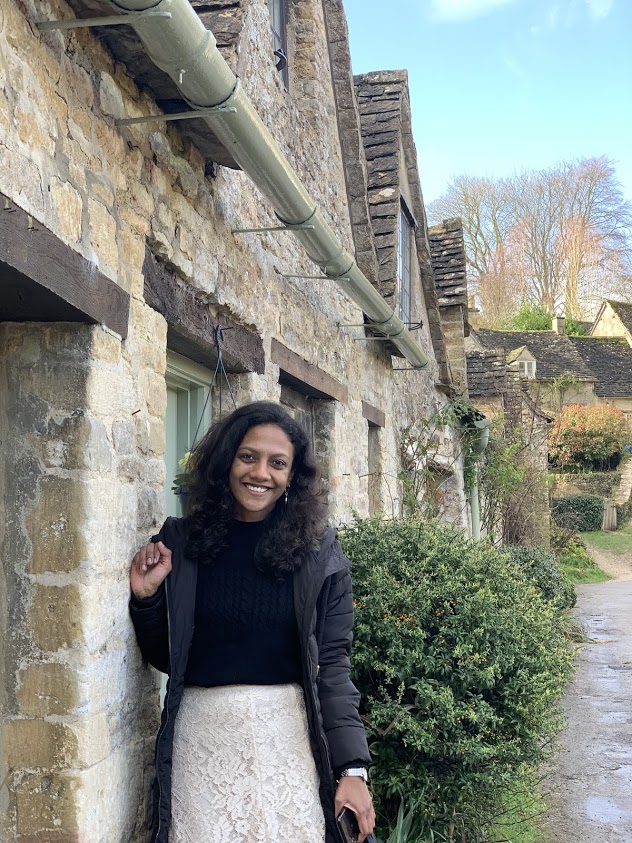In this video, Surya tells us about her project turning waste into construction materials and the benefits of being part of the DTA community
“I am Surya. I am a third-year MSCA DTA3/COFUND Energy fellow, studying at the University of Hertfordshire. I am from a Civil Engineering background presently focusing on sustainable building materials. My research studies the feasibility of the use of a silicate-rich mine tailing for the production of cementitious binders.
We all enjoy the benefits of technology and development. But we also pay a price. We create more products and technologies to meet with all the demands, and when we create more, we also use more energy and resources, and in turn, we produce a lot of waste which is harmful to the environment. The Mining industry has a significant contribution to the global economy and development. However, mine wastes including mine tailings represent one of the largest contributors of industrial waste produced. These wastes have a serious impact on the environment, life on land, and life below water. Effective management of these wastes directly affects the sustainable development goals. These wastes vary in composition with some of them being rich in SiO2, Al2O3, Fe2O3, and CaO; compounds that can be found in cement we use in construction.
On the other hand, the worldwide demand on cementitious materials has increased considerably in the last 15 years. There is an opportunity to explore the potential of such mineral wastes in the manufacture of cementitious binders. The use of mine tailings in cement can offer a solution to both the problems discussed. I believe the use of these wastes in cement shall reduce the burden on the environment and help in attaining responsible production and consumption. It will also be a step towards circular economy and near zero waste emissions.
In my study characteristics of the mine tailing have been assessed, and suitable processing and treatment was identified and adopted to make it more reactive. The activated mine tailings have been found to possess properties suitable for their use in cements/ cementitious binders. The work involves a lot of experiments and I love the days I spend in the lab. It is exciting to perform different experiments and obtain the results. Besides that, knowing that through these small steps I am addressing real world problems and what I do matters is something that always keeps me motivated. The construction industry, being one of the major contributors of greenhouse gas, is still in need of so much improvement to reduce its impact on the environment. My work not only helps in reusing waste materials and reducing emissions, but also helps in conservation of natural resources.
Performing this research as a part COFUND DTA3 provided with an incredible opportunity of being a part of a research group which is larger and widespread across universities which are the part of University Alliance. I believed it has provided us the chance to interact and collaborate with other researchers from different countries and research areas across different universities. The various training programs, workshops and summer/winter/autumn schools conducted by DTA had always encouraged and facilitated such interactions. Also, being a part of H2020 program means all the projects are directly addressing the major societal challenges.
The programme constantly works on providing us necessary training for professional development, research development, networking and collaboration and mindset improvement. In all the workshops we have attended, the contests and tasks we were given were creative. Working on those tasks trained us to present and disseminate our works in different visual and vocal formats to target audience with different levels of domain expertise from the very beginning of our project. Also, seeing similar presentation of other cohorts was inspiring. The trainings and the events organised by DTA has trained us to be able to pitch our project ideas to people of different domains and different expertise in a convincing manner. This skill shall be of great advantage in future for funding applications. I personally am looking forward to further my career in research in sustainable construction materials.
The skills, networking and the knowledge I have gained during this course of my PhD has provided me with the necessary skillset for an academic as well as a non-academic career. All the discussions with alumni have provided us with necessary information on what and when to prepare for chosen career, helps us work towards the goal confidently. Also, knowing that irrespective of the career we choose we have the network and means to collaborate in the future makes this choice less daunting.
Personally, as a student who pursued PhD at times of pandemic, I can very strongly say being a part of DTA made a lot of difference. DTA provided me with the opportunity to network with DTA members, PhD students and alumni. DTA team provided a strong sense of belongingness, and it was a great moral support.
Professionally, DTA provided me with the opportunity to network with DTA alumni. It was a great way to talk about my PhD experiences, get advice and help, and improve my research. Also, DTA has given me with an opportunity to establish an amazing network with our fellow cohorts. Five or ten years down the line, I see DTA researchers working across different countries and different research groups which would provide better opportunities for collaboration.”
![]()




